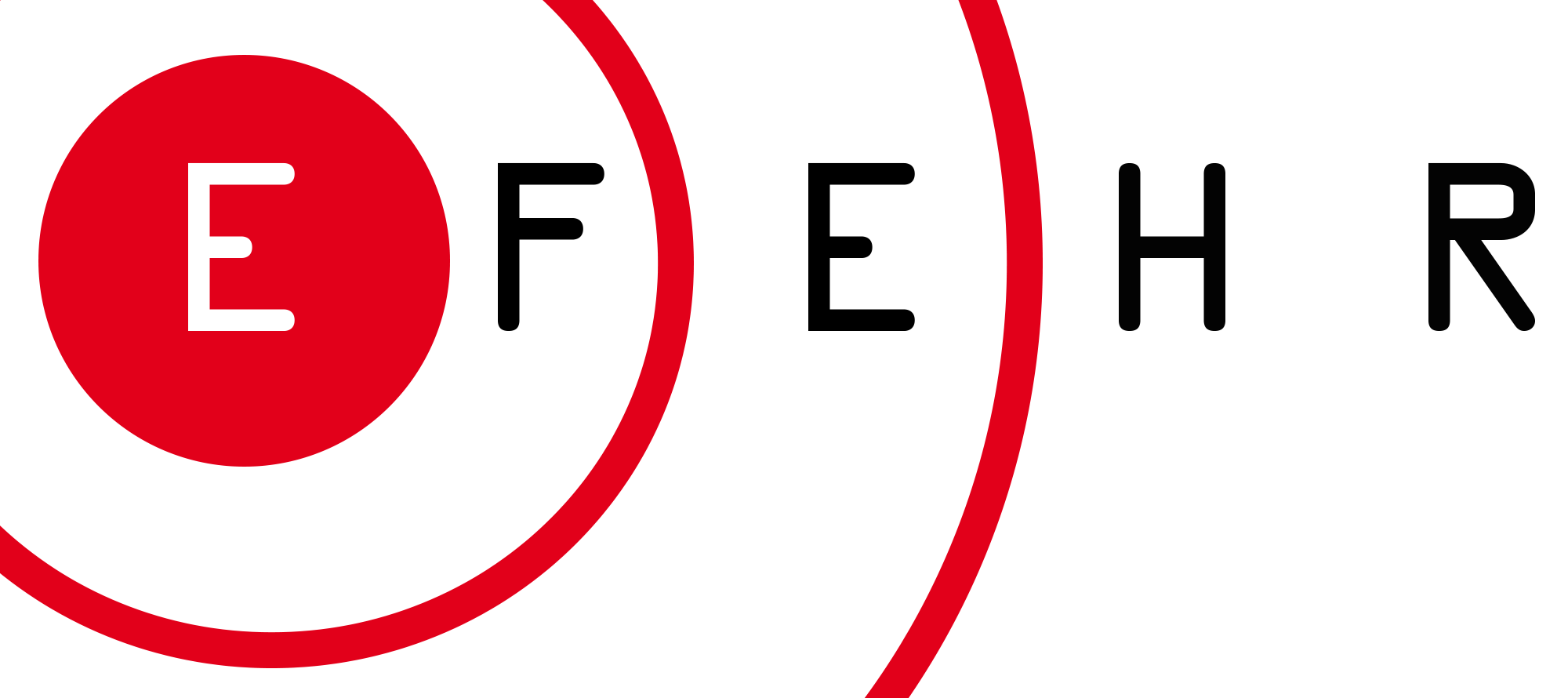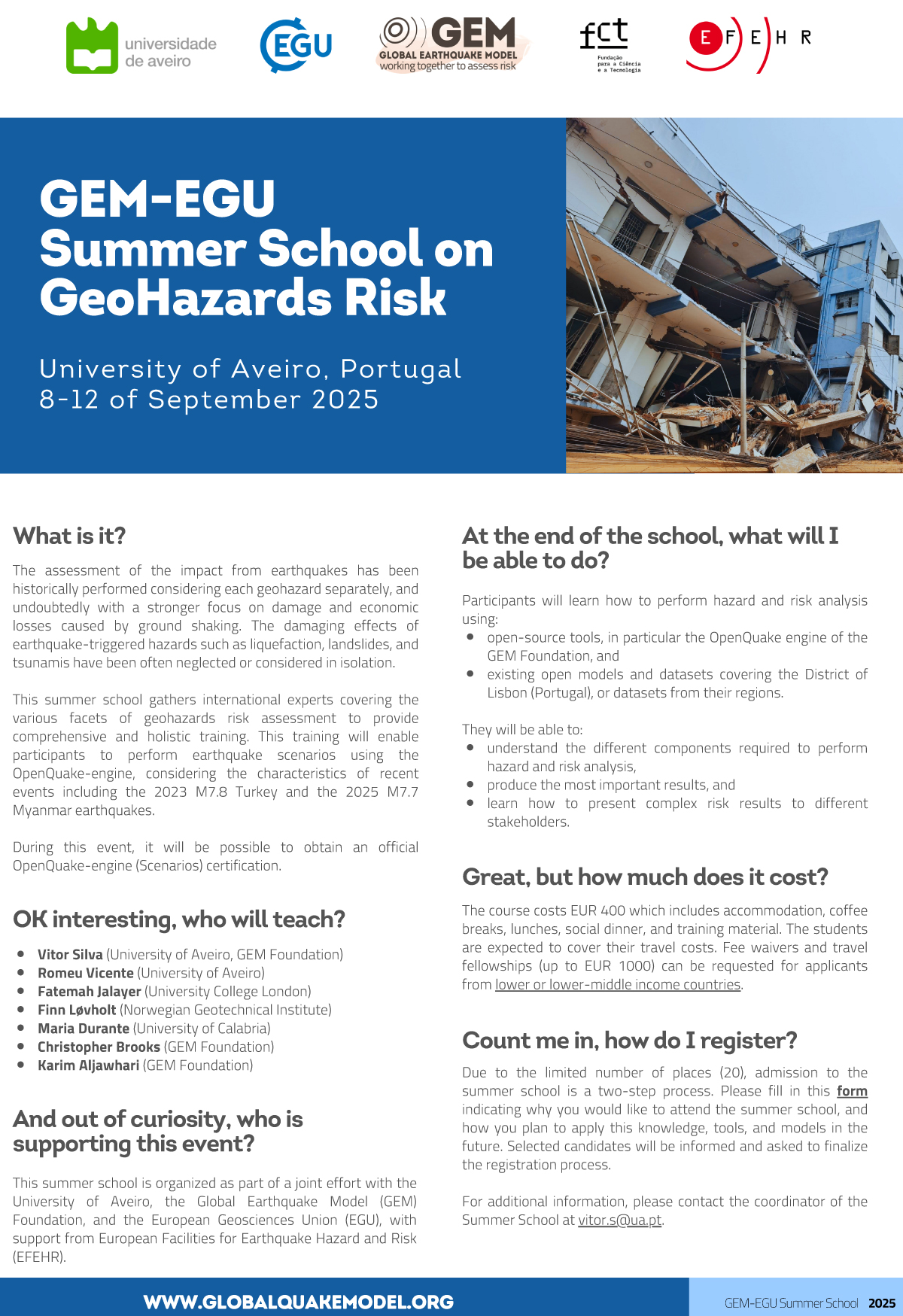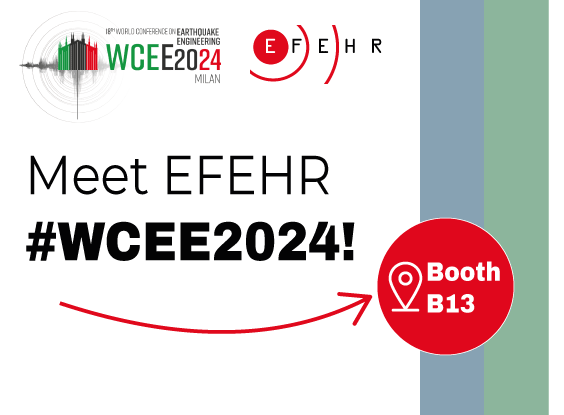Invitation to the EPOS Seismology & Geo-INQUIRE Workshop
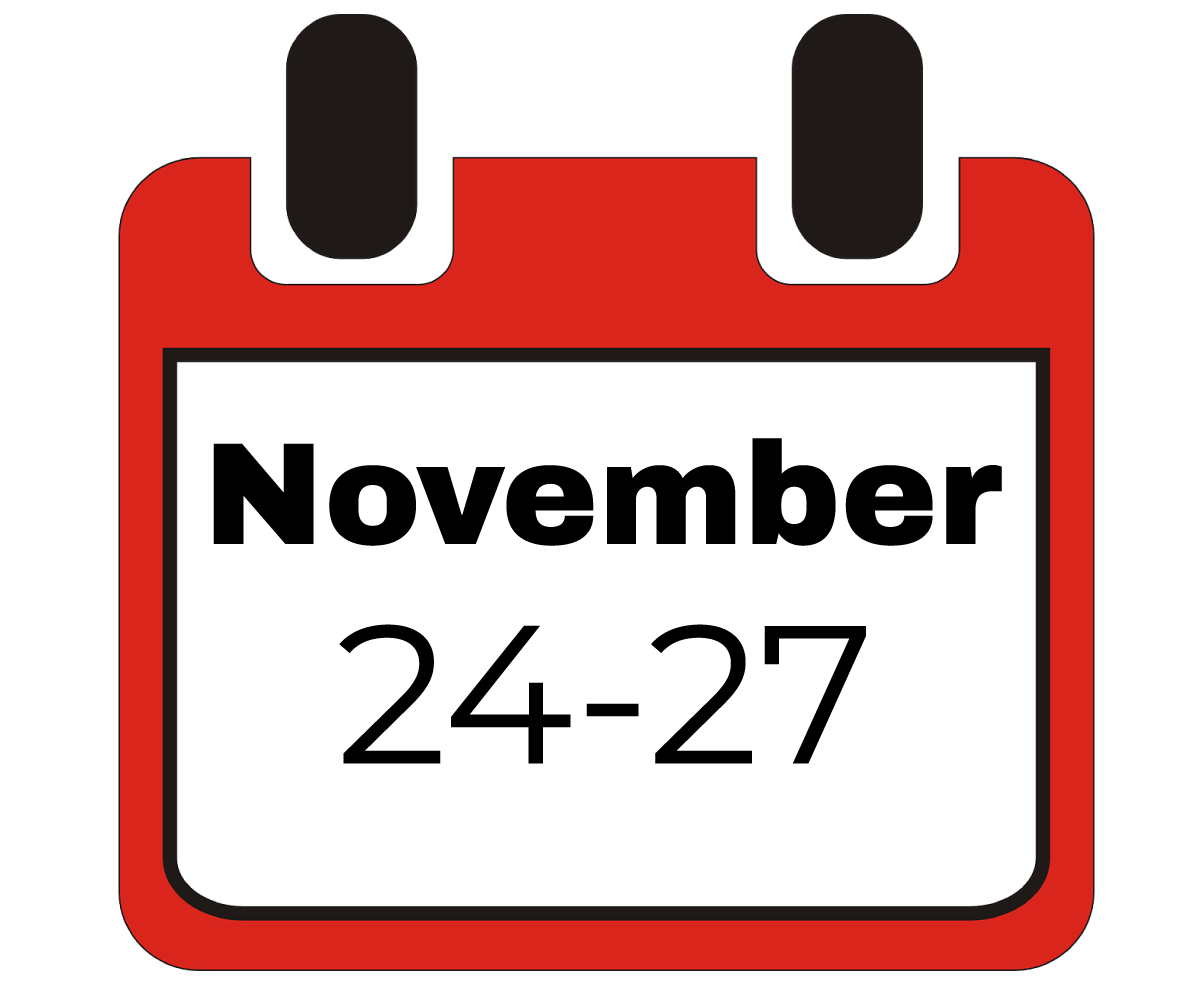
We kindly invite you to the workshop entitled: “From Big & Novel Datasets to AI for Frontier Seismological Science and Services”.
- Date: 24 to 27 November 2025
- Location: Propylaea building of the National and Kapodistrian University of Athens, Greece
- Programme: Click here to check out the preliminary programme
- Registration: Want to join? Register here!
- Registration deadline: 24 October or earlier if the maximum capacity of 120 attendees is reached
The workshop is co-organised by EFEHR, ORFEUS, and EMSC, with local support from the Institute of Geodynamics of the National Observatory of Athens (NOA-IG) and financial support from the EC project Geo-INQUIRE.
Participation is free of charge. The maximum number of participants is set to 120/day, including the organisers, speakers and trainers. Travel grants will be available through Geo-INQUIRE and ORFEUS/EFEHR funds to subsidise the travel and accommodation expenses of qualified participants. Grantees will be reimbursed after the workshops. The procedure to apply for travel grants is specified in the registration form: it includes the submission of a presentation and motivation letter of max 500 words, accompanied by the email addresses of one/two referees.
Registration will close by 24 October or earlier if the maximum capacity of 120 attendees is reached. The recipients of travel grants will be informed by 22 September 2025 at the latest, thus allowing the timely purchase of plane/train tickets and booking of accommodations. All participants - including organisers, speakers, trainers, and attendees - are expected to organise their travels independently. We encourage you to take advantage of the large number of highly-ranked yet affordable hotels in Athens.
We are looking forward to receiving your registration and to meeting many of you in Athens this fall!
Register now for the workshop: “Connecting with insurance and cat-modelling professionals”
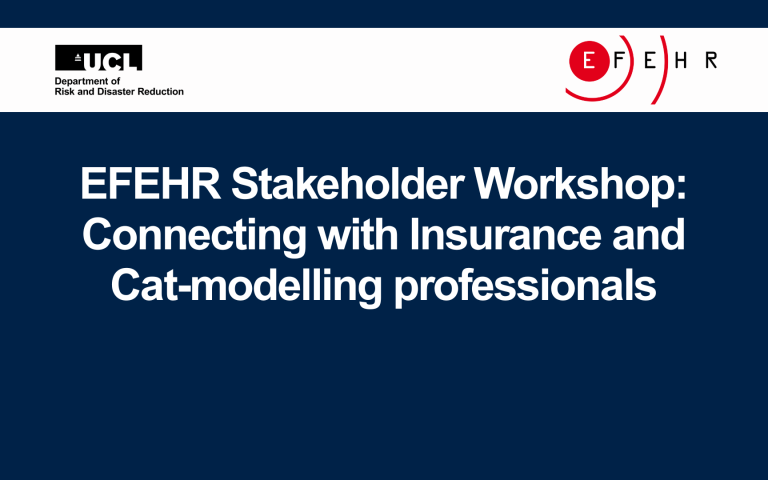
Recognising the vital role of seismic hazard models and services in informing risk management strategies, EFEHR seeks to bridge the gap between scientific research and practical industry applications. This meeting provides a platform to exchange knowledge, identify industry-specific needs, and foster collaboration between insurance and catastrophe-modelling professionals.
The workshop aims to gather stakeholder insights to shape future hazard and risk products and promote engagement between EFEHR and industry through joint initiatives and the co-organisation of future events and workshops.
There are still places available. Are you working in insurance, CAT modelling, or science? Register by 10 June!
Workshop information
- Venue: University College London, IOE
- Date: 19-20 of June 2025
- Registration deadline: 10 June – register here!
Registration open for the GEM-EGU Summer School on GeoHazards, 8-12 September 2025
The GEM-EGU summer school gathers international experts covering the various facets of geohazards risk assessment to provide comprehensive and holistic training. It will enable you to perform earthquake scenarios using the OpenQuake-engine, considering the characteristics of recent earthquakes. During this event, you can obtain an official OpenQuake-engine (Scenarios) certification.
GEM-EGU Summer School on GeoHazards
- 8-12 of September 2025
- University of Aveiro, Portugal
- More information
Count me in, how do I register?
Due to the limited number of places, admission to the summer school is a two-step process. Please fill in this form by the end of April:
- Indicate why you would like to attend the summer school
- Briefly explain how you plan to apply this knowledge, tools, and models in the future
Selected candidates will be informed and asked to finalize the registration process. For additional information, please contact the coordinator of the Summer School at vitor.s[at]ua.pt.
This summer school is organized as part of a joint effort with the University of Aveiro, the Global Earthquake Model (GEM) Foundation, and the European Geosciences Union (EGU), with support from European Facilities for Earthquake Hazard and Risk (EFEHR).
IAGA-IASPEI 2025: Submit your abstract now!
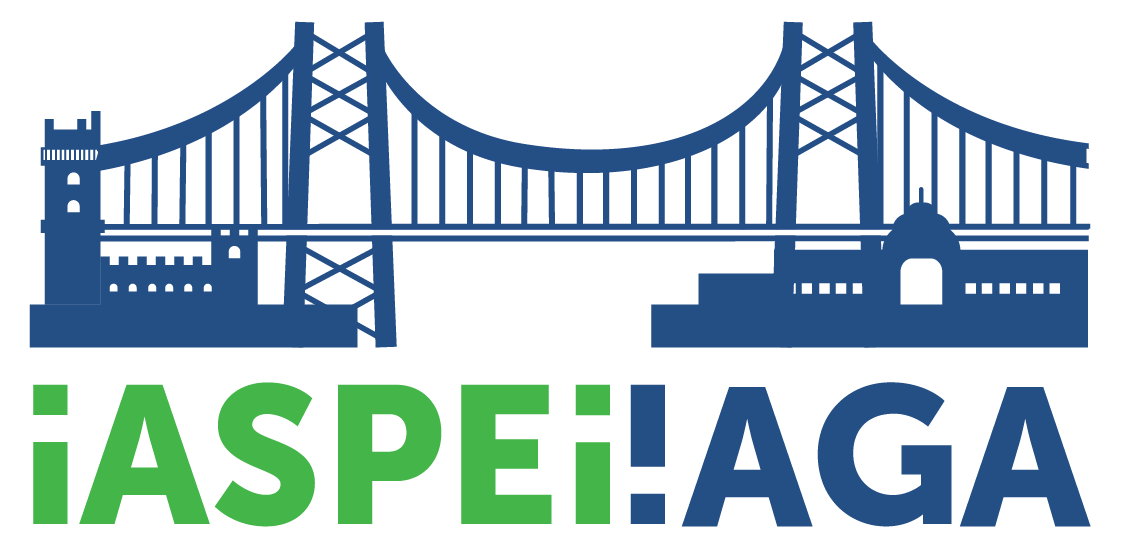
This year, the IAGA-IASPEI Joint Scientific Meeting will take place in Lisbon from 31 August to 2 September, featuring an exciting programme of scientific sessions, early career scientist schools, and social events.
Join EFEHR's session
EFEHR will be part of the meeting, hosting session S15 "Earthquakes in low strain regions: Challenges, Advances and Opportunities – From field studies to seismic hazard assessment”. The session is convened by Susana Custódio (Portugal), Laurentiu Danciu (Switzerland), Beau Whitney (France), Andrea Walpersdorf (France) and Michele Carafa (Italy). Abstracts must be submitted via the online submission system by 12 March 2025, 23:59 Pacific Time.
Session description
Wide regions of distributed tectonic deformation are observed in the Earth, where fault slip rates are low. Intraplate earthquakes illustrate active yet low strain processes typical of deformation within the interior of plates. Earthquakes in these regions can reach large magnitudes and can, due to the crustal characteristics of these settings and lower preparedness, become disproportionately damaging compared to similar magnitude events along plate boundaries. Our understanding of earthquake processes in these regions is slowly maturing, however, quantifying the seismic hazard in these regions remains challenging.
The significant increase in seismological, paleoseismological, geological, and geodetic data collected in recent years has yielded high-quality data sets on earthquake hypocentral locations, focal mechanisms, fault slip rates, Earth structure, crustal stress patterns, and GNSS surface deformation. Collectively, these data are beginning to provide insights to better understand earthquake processes in low strain regions. Ongoing research in these regions are still grappling with fundamental questions that directly feed into the development of seismic hazard models and their societal applications. How can we identify “active” faults in regions of broad distributed deformation? How can we relate the characteristics of fault networks to earthquake potential, frequency distribution, and subsequently to seismic hazard? What is the role of fault interaction in long-term seismicity forecasts? How can the time-space variability of earthquakes in these regions be modeled? How can we integrate GNSS, seismic and geological data in physics-based models for future seismic hazard assessment?
In this session we welcome contributions that improve our understanding of seismogenesis and seismic hazard in regions of distributed low-strain deformation. We welcome theoretical, observational, and numerical contributions from a broad range of disciplines, including field geology, structural geology, seismology, paleoseismology, geodesy, rheology, crustal stress, geodynamics, modelling and seismic hazard assessment. We also encourage studies that use advanced technologies, such as machine learning, high-performance computing, and novel datasets and processing techniques, to address these complex issues.
More information
Apply now for Geo-INQUIRE's Transnational Access “Probabilistic Seismic Hazard Analysis”
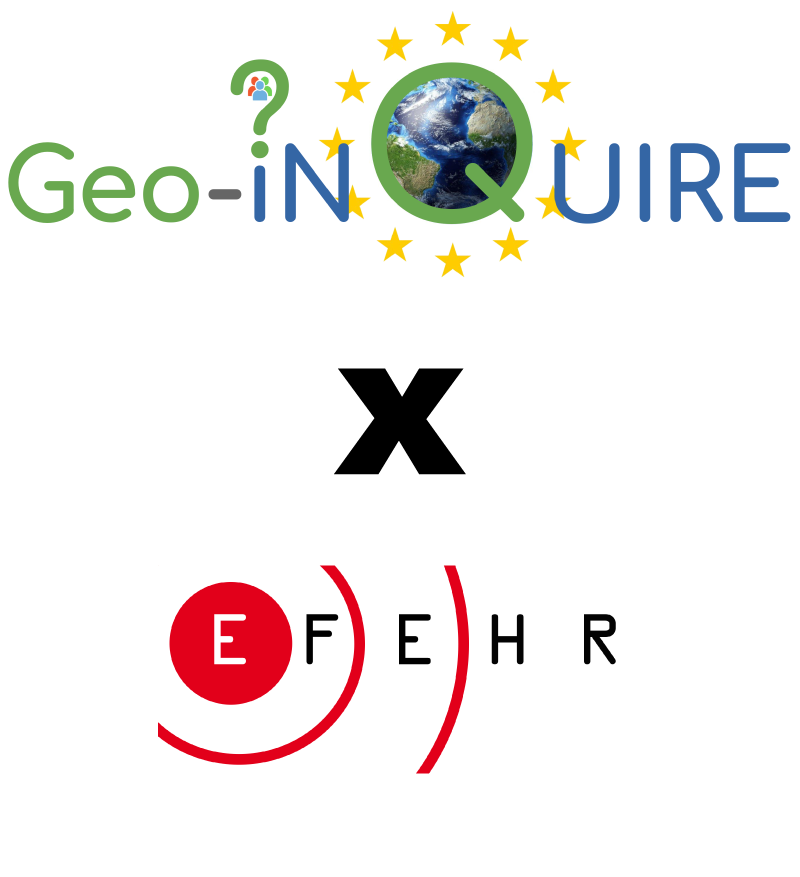
The 3rd Geo-INQUIRE Transnational Access Call to European research infrastructures is open. EFEHR participates again in this initiative and offers access to the expertise and state-of-the-art facilities at ETH Zurich. EFEHR provides remote and in-person access for training and research on regional or national seismic hazard models, utilizing the advanced “EF-PSHA - Probabilistic Seismic Hazard Analysis (TA2-542-1)” installation. The EFEHR infrastructure supports advanced hazard and risk computations, sensitivity analyses, and uncertainty quantifications, along with guidance on using and tailoring seismic hazard models.
You can benefit from:
- Training and support for the definition of the scientific problem, and implementation of the computational workflow, run of data analysis, dissemination of products.
- Physical access (up to 2 weeks) to ETH Zurich (Switzerland).
- Possibility to access and/or uptake of the simulation results on the Simulation Data Lake at CINECA
- Travel and subsistence costs covered by TA grants (~ 3500 Euro)
Submit your application now by February 28, 2025, via the Geo-INQUIRE TA portal. Don’t miss this opportunity to collaborate with leading experts in seismic hazard and risk assessment!
For details and to apply, visit: https://www.geo-inquire.eu/transnational-access-offer/ta2-542-1
All about multi-hazard and multi-risk assessment for geohazards: EFEHR Scientific Session 2024 in Luxembourg
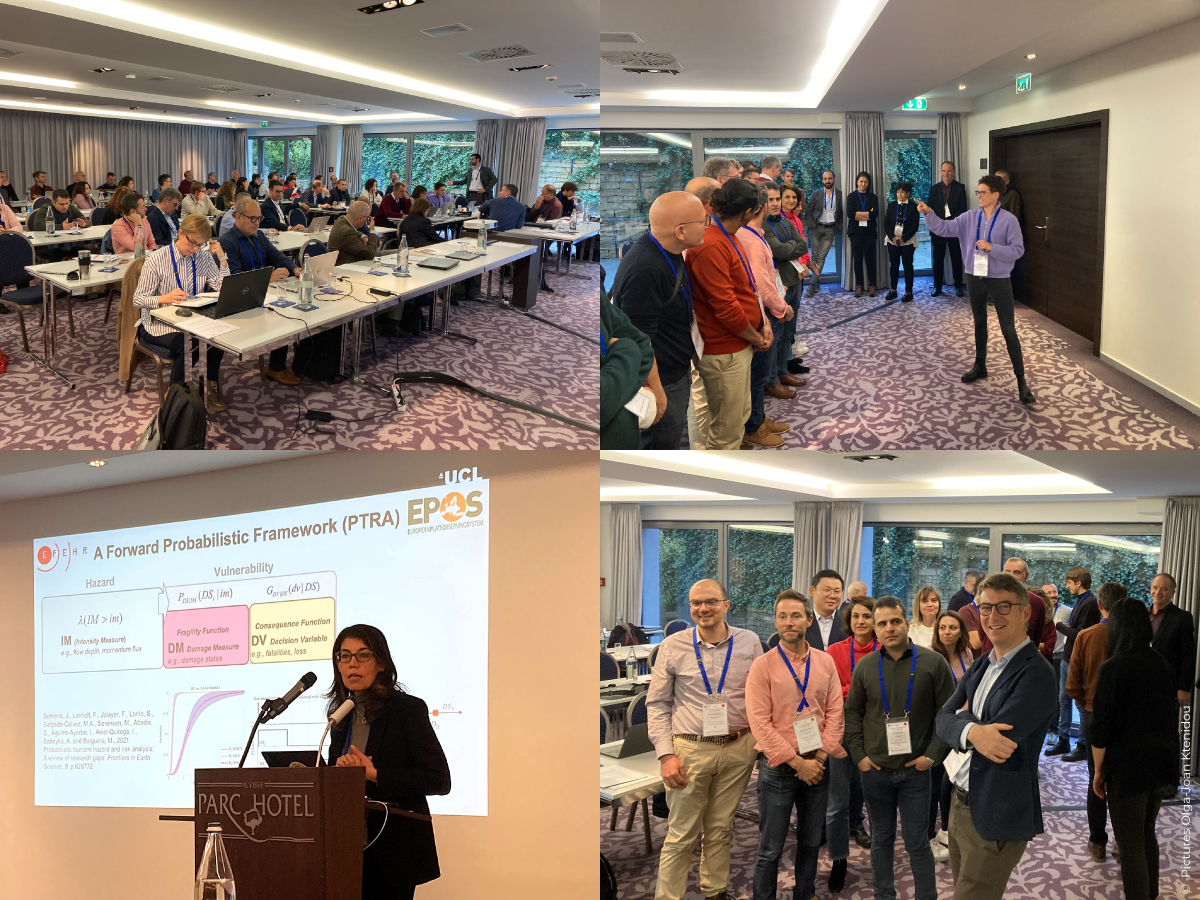
Risk assessment bridges the geo-hazards to their societal impacts. As such, it constitutes the most outward-facing component in the chain. This process begins with data collection and modelling the phenomena, advancing towards an understanding of their consequences. This is where models meet reality – a reality that is invariably complex and shaped by multi-hazard and multi-risk dynamics.
While significant steps have been made in understanding single hazards and their immediate effects over recent decades, much remains to be explored about the complex interactions between hazards and their societal impacts. These are scenarios where the whole exceeds the sum of its parts, and straightforward cause-and-effect relationships are challenging to define.
The 102nd Journées Luxembourgeoises de Géodynamique (JLG) and the EFEHR Scientific Session 2024 tackled these critical issues by dedicating three intensive days to the theme of multi-hazard and multi-risk assessment for geohazards. Participants from research, industry, and policymaking explored the challenges from diverse perspectives, facilitating cross-disciplinary dialogue and collaboration.
Key topics included the integration of machine learning and AI, cross-border risk management, effective risk communication strategies, and practical insights from industry and international organisations. This exchange underscored the importance of learning from one another to advance knowledge and practices in understanding and mitigating complex geohazards.
Workshop: Artificial Intelligence and Machine Learning for Geosciences
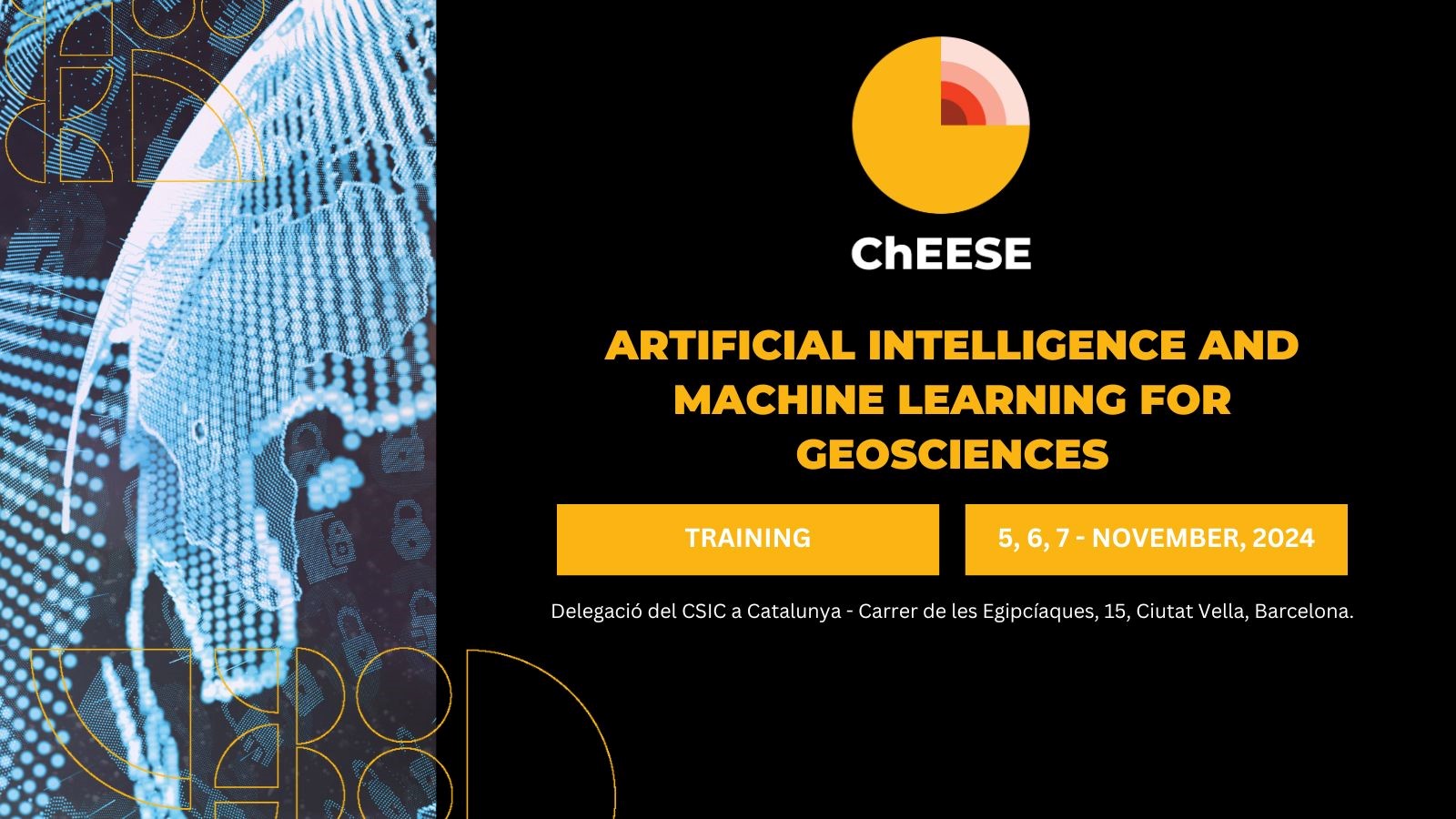
ChEESE CoE organises an in-person workshop in Barcelona! From November 5 to 7, 2024, geoscientists will have the opportunity to dive into the world of Artificial Intelligence (AI) and Machine Learning (ML) through hands-on training.
Participants will learn about various AI algorithms and work with real datasets using cutting-edge tools. The workshop is free of charge, but spots are limited to 24 participants. Expert-led sessions will guide you on how to apply AI techniques to your research.
Workshop details
- Title: Artificial Intelligence and Machine Learning for Geosciences
- Dates: November 5-7, 2024
- Location: Delegació CSIC Catalunya, Carrer de les Egipcíaques, 15, Ciutat Vella, Barcelona
- Registration: click here
This course will introduce fundamental AI tools, from linear regression to deep neural networks. Participants will engage in hands-on tutorials covering the machine-learning process, including training, testing, and generalization.
EFEHR at the World Conference on Earthquake Engineering
The 18th World Conference on Earthquake Engineering (WCEE) takes place from June 30 to July 5 in Milan. Together with the Geo-INQUIRE project and the ERIES Project, EFEHR hosts a booth (B13) where you have the possibility to meet and talk to representatives of the EFEHR Executive Committee and EFEHR members. Come visit us for a coffee and chat! Another highlight is the EFEHR technical session on "New Data and Cutting-Edge Technologies for Seismic Hazard Assessment and Risk Mitigation" (SHR16/19). These sessions will be convened by Laurentiu Danciu, Helen Crowley, Olga-Joan Ktenidou, Céline Beauval, António A. Correia, and Päivi Mäntyniemi.
SHR16/19 - NEW DATA AND CUTTING-EDGE TECHNOLOGIES FOR SEISMIC HAZARD ASSESSMENT AND RISK MITIGATION
Plenary stage presentations:
- WEDNESDAY, 14:30 | AMBER 5
- THURSDAY, 14:30 | AMBER 4
Monitor presentations:
- THURSDAY, 10:30 | MONITOR 25 + 26
More information
Detailed session programme SHR16/19
World Conference on Earthquake Engineering
Abstract submission open for EFEHR’s ESC session
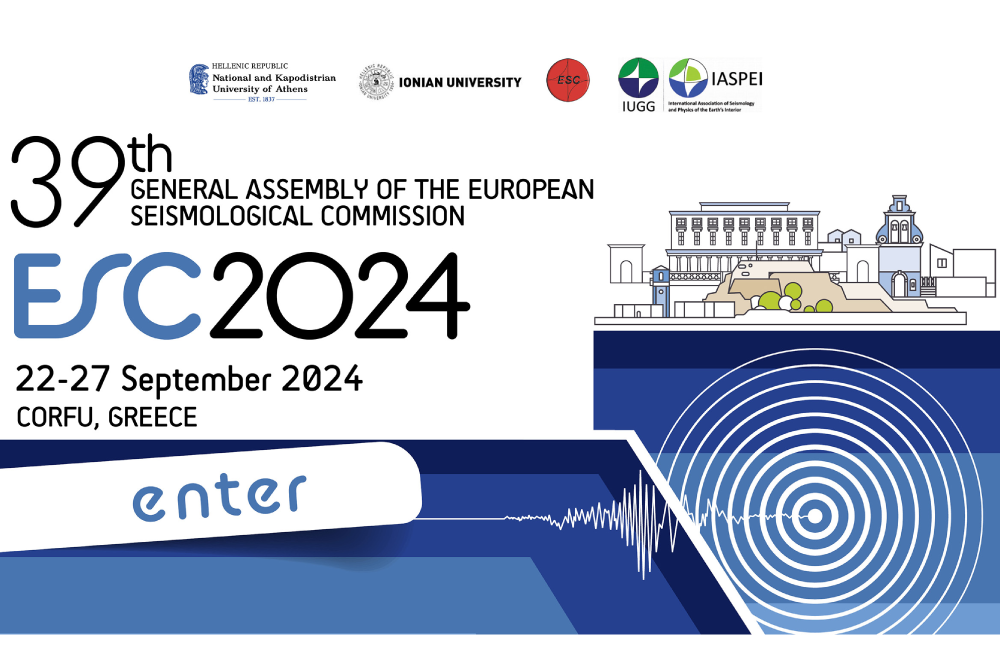
In September, about 700 early-career and senior researchers from more than 60 countries from Europe and all around the world will meet at ESC2024 in Corfu to discuss different modern fields of seismology and related applications. EFEHR will also take part in this conference and will host a session, highlighting innovative developments in seismic hazard and risk modelling across Europe: "Innovating and integrating: Bringing new science into Earthquake Hazard and Risk Assessment for Europe”. The past decade has witnessed a leap forward in the development of earthquake hazard and risk models. Looking to the future, we can see the emergence of new technologies and scientific innovations that have the potential to address the challenges in the characterization of earthquakes and their impacts on society.
The focus of EFEHR's session is therefore on how we can integrate emerging science and technologies into future generations of models to serve a wide range of applications. Submissions on a diverse range of topics are welcome:
- State-of-the-art earthquake hazard, vulnerability, exposure, and risk models in Europe;
- Capitalising on new datasets and advanced technologies including remote sensing, geodesy, crowd-sourced data, machine learning, and distributed acoustic sensing;
- Physics-based simulations of the earthquake rupture and strong ground shaking;
- Time-dependent hazard and risk analysis;
- Multi-hazard modelling integrating earthquake-induced events such as subaerial and submarine landslides, tsunamis, liquefaction, and co-seismic displacements;
- Novel methods for quantification, propagation, and reduction of uncertainties, and for validation and verification of models against data;
- Societal impact and applications in industry, including seismic design, catastrophe modelling, impact forecasting, and risk assessment
Deadline abstract submission: 12 April 2024
More information
Apply now for transnational access to European research infrastructures

For the first time, the Geo-INQUIRE project will provide transnational access to more than 30 state-of-the-art research infrastructures between January 2024 and March 2026. These infrastructures include laboratories, observatories, high-performance computing facilities, and other installations supporting the development of excellent, high-level, and ground-breaking science across various fields of geosciences. Together with other facilities, EFEHR is actively participating in this initiative to provide access to computational services in high-performance computing facilities for simulating geophysical phenomena and conducting probabilistic hazard analysis.
What does EFEHR offer?
At ETH Zurich, EFEHR offers both remote and physical access for training and subsequent development of research projects, related to regional or national seismic hazard models under the installation “EF-PSHA - Probabilistic Seismic Hazard Analysis (TA2-542-1)”.
Applications can be submitted by 15 March 2024 through the Geo-INQUIRE TA website.
Access to unique high-level installations and experiments provided through Geo-INQUIRE is free of charge for the selected users and includes all costs necessary to perform the proposed research, such as equipment, support staff at the installation, consumables, training for external users and others.
Geo-INQUIRE (Geosphere INfrastructures for QUestions into Integrated REsearch) fosters excellent, interdisciplinary and curiosity-driven research of the solid Earth, including land-sea-atmosphere interfaces.
More information: www.geo-inquire.eu
